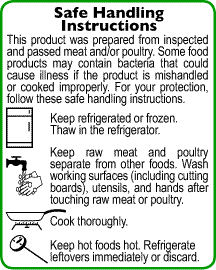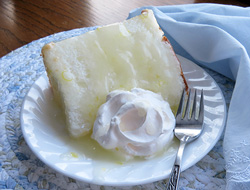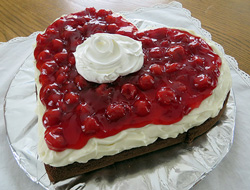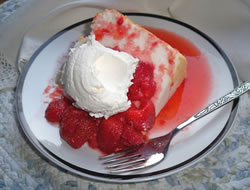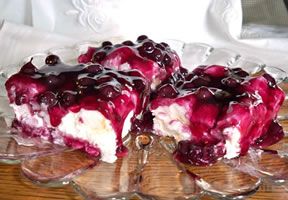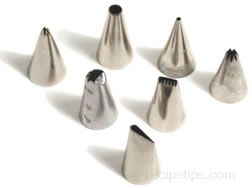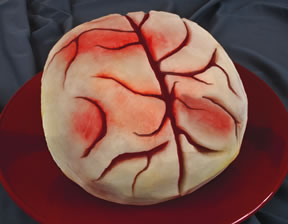- Eating foods that are soft, easy to chew, and easy to swallow, will help to reduce some of the irritation that occurs when eating. The foods listed below are good choices for people who are plagued by pain an irritation in the mouth and throat when eating.
- Warm cereal such as cream of wheat or oatmeal
- Mashed potatoes or noodles
- Mashed or pureed vegetables
- Rice or noodle casseroles
- Macaroni and cheese
- Scrambled or soft cooked eggs
- Creamed soups
- Pureed meats
- Cottage cheese or yogurt
- Custards and puddings
- Gelatin
- Soft, non-acidic fruit such as bananas, peaches, and pears
- Applesauce or pureed fruit
- Frozen fruit pops or Popsicles™
- Sherbet, ice cream, and milk shakes
- High protein supplemental shakes
- Cold liquids
- Some of the foods to avoid when you have a sore mouth or throat.
- Citrus fruit, such as oranges, grapefruit, and lemons
- Tomatoes and tomato juice
- Foods that are salty and foods containing spices, such as chili powder, cloves, nutmeg, and pepper
- Food with a coarse texture such as chips, popcorn, crackers, toast, raw vegetables, and nuts
- Foods that are pickled or foods with a vinegary dressing
- Very hot foods or beverages
- When cooking meat, use a moist heat cooking method such as steaming, braising, stewing, or poaching.
- Cook vegetables until they become soft and tender.
- Foods such as meat, vegetables, potatoes, noodles, rice, and breads can be made easier to eat by adding margarine, mayonnaise, cream sauce, gravy, or salad dressing to add moisture.
- Cut food into small bite-size pieces, and if they are still cause a problem, try grinding, mashing, blending, or pureeing foods that are difficult to chew and swallow.
- Drinking warm bouillon or salty broth can help to soothe a sore throat, but if you have sores inside of your mouth, you will want to refrain from consuming salty liquids.
- Dunking foods, such as bread, toast, donuts, or cookies, into liquids, such as milk, coffee, or tea, will help to soften the food, making it easier to chew and swallow.
- Use a straw to drink liquids.
- If soft, creamy foods, such as pudding, custard, yogurt, cottage cheese, cooked cereal, and mashed potatoes, are still difficult to swallow, try thinning them down with milk or some other type of liquid.
- If you are having a difficult time chewing and swallowing, it is likely that you are not getting proper nourishment. Try to eat as many nourishing foods as possible, such as cream soups, malts, cocoa, nourishing instant breakfast drinks, and high-protein supplemental drinks.
- Sucking on ice chips or eating ice cream, sherbet, frozen yogurt, popsicles, or frozen juice pops, may soothe a sore throat.
- Do not use mouthwash that contains alcohol because it will cause a burning sensation when it comes in contact with the sore areas of your mouth and throat. Rather than using alcohol-based mouthwashes, rinse often with a salt solution of one teaspoon of baking soda and three-fourths teaspoon of salt stirred into one quart of water. This will help to remove bacteria and speed up the healing process, as well as to help prevent infections. If you cannot tolerate the salt water, use plain water to rinse your mouth.
- Anesthetic lozenges and sprays are available that you can use to numb your tongue and throat for a period of time, which can make it somewhat easier to eat. It is always wise to check with your doctor before using any of these types of products.
- Contact your dentist if your teeth and gums are hurting, because he or she may have a product that could provide you with some relief.
|








